
 Flash News
Flash News
Poll/ DP ranks first in Shkodra
Bullets fired at car, Albanian injured in Switzerland
The hotel was built without a permit, the Gjirokastra Prosecutor's Office seizes the building, the owner is imprisoned
Power outages in Spain and Portugal, services 'paralyzed'
Richard Grenell reacts to the news reprinted by Politiko: It is false!
The explosion damaged the water channel of Ibër-Lepenci/ Kurti: Orchestrated by Serbia! Hovenier: The US strongly condemns the attack on Kosovo's critical infrastructure
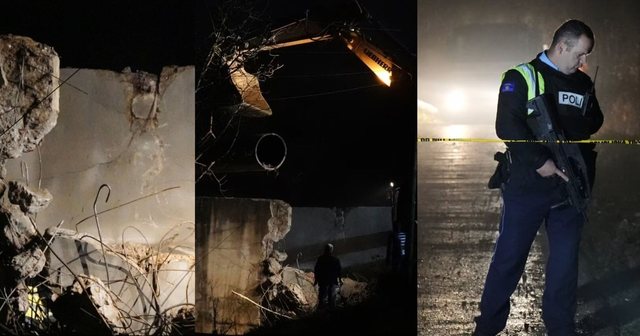
An explosion that occurred on the evening of November 29 in the village of Varragë in the municipality of Zubin Potok has damaged the Ibër-Lepenci water channel, from where water is supplied from Lake Ujman to several cities in the country, as well as the Kosovo Energy Corporation for cooling its thermal power plants.
There were no victims from this explosion, according to Kosovo authorities. The Prime Minister of Kosovo, Albin Kurti, has accused Kosovo's northern neighbor, Serbia, of a "criminal and terrorist attack", which, according to him, aimed to "damage perhaps the most important infrastructure" of the country.
Meanwhile, international representatives in Kosovo have strongly condemned the explosion in Ibër-Lepenc. Kurti said in an extraordinary media conference, before midnight, that through the attack, an attempt was made to jeopardize Kosovo's supply of water and electricity.
He called on the citizens to "be calm and follow the official announcements" from the country's bodies, which he said "are engaged in managing the situation and recovering the damage".
The head of the Kosovar executive has declared that the explosion in Zubin Potok is a terrorist attack, which the Kosovo authorities believe "comes from gangs directed and orchestrated by Serbia, which has the interest and ability to cause such attacks and damage".
As a result of the damage to the Ibër-Lepenci canal, Kurti said that many parts of Kosovo may be left without electricity on the morning of November 30, while some cities and a part of the capital city, Pristina, may be left without water. drinkable.
Kurti has stated that "there can be no other address for guilt for the organization and orchestration of the attack, except for official Belgrade and the criminal structures led by Milan Radoicic", which, he added, are supported by Serbian institutions and President Aleksandar Vucic.
He said that Radoicic, who took responsibility for the deadly attack in September 2023 in the village of Banjské in Zveçan, "is free in Serbia and leads with the paramilitary elements there", which, as he said, hate Kosovo and the people of her.
Kurti said that the incident in Zubin Potok is the third explosion in the last three days, through which, according to him, "it is intended to incite fear and insecurity in the three municipalities in the north, to escalate the situation throughout the country".
"Such efforts will remain desperate. Constitutionality, the rule of law, order and the people, our republic, will never be defeated by anyone".
Kurti thanked the international partners, the United States of America and the European Union, for "their support to the country".
He said that immediately after the conference he will meet the commander of the peacekeeping mission of the North Atlantic Treaty Organization (NATO) in Kosovo, KFOR, and that an extraordinary meeting of the Security Council of Kosovo will be held.
What is Ibër-Lepenci?
The Hydroeconomic Enterprise "Ibër-Lepenc" is a joint-stock company headquartered in Pristina and is a multifunctional enterprise that supplies industry, waterworks and agriculture with raw water, as well as produces electricity from the Ujman Hydropower Plant.
Based on government documents, from the Ibër-Lepenci system in Ujman to Zubin Potok, the north of Kosovo is supplied with drinking water, but also Pristina and its surroundings. This hydrosystem also supplies water to the thermal power plants in Obiliq, which is used for cooling the thermal power plants Kosova A and Kosova B, while in addition, the water from the Ujman reservoir is also used to irrigate agricultural areas. The Ibër-Lepenc canal itself has a length of 49 kilometers – from Lake Ujman to Pristina and ends at Lake Badoc near Pristina.
7 municipalities, south and north of the Ibër river, are supplied with water from Ujman; South and North Mitrovica, Zveçani, Vushtrri, Gllogoci, Skenderaj and a part of Pristina.
Apart from them, the thermal power plants Kosova A and B, Trepça and Ferroniceli depend entirely on the supply of water from this artificial lake. Likewise, 32 Megawatts (MW) of electricity are produced in the Vallaçi hydropower plant.
Regarding this explosion, there were no immediate reactions in Serbia. Lista Serbe, the main Serbian party in Kosovo, which has the support of Belgrade, said it strongly condemned the damage to the water channel in the village of Varragë, calling it "an act absolutely against the interests of the Serbian people". The Serbian party said that the damage to the water channel, in addition to jeopardizing the water supply of citizens, also "caused concern to the Serbs in the north of Kosovo".
Earlier, the Minister of Internal Affairs, Xelal Sveçla, who came to the scene, said that the explosion was heard before 19:00, and that a part of Ibër-Lepenci, which is considered a critical infrastructure, was damaged. He described as a "terrorist act" the damage to the water channel, through which he said that the Energy Corporation of Kosovo is also supplied. Sveçla said that the institutions have been mobilized so that the damages are repaired and the citizens do not suffer the consequences.
"It is an imperative duty of the security institutions to investigate the terrorists who committed this terrorist act and bring them to justice," he stressed.
The President of Kosovo, Vjosa Osmani, blamed "Serbian criminal gangs" for the attack on Kosovo's critical infrastructure. Serbian criminal gangs have lost every battle with Kosovo's institutions.
"The protection of constitutionality and legality in every corner of the country and the uncompromising fight against these criminal elements are vital," she said, calling on citizens to continue to show calmness and prudence until the institutions investigate the case and repair the damage. The "Mitrovica" Regional Waterworks announced that it has cut off the supply of drinking water due to damage to the canal. The operator of the System, Transmission and Market in Kosovo, after the explosion in Zubin Potok, said that the supply of electricity remains safe and uninterrupted throughout the territory of Kosovo.
"Also, our teams are continuously monitoring the situation to guarantee the stability and safe operation of the electricity system," KOSTT said.
Hovenier: The US strongly condemns the attack on Kosovo's "critical infrastructure".
The American ambassador in Pristina, Jeff Hovenier, strongly condemned the attack on "critical infrastructure in Kosovo", after the damage to the water channel in the north.
"We are closely monitoring the situation, we will support a comprehensive investigation and have provided full support to the Government of Kosovo to ensure that those responsible for this criminal act are identified and held accountable," he said in X.
The United Kingdom's ambassador to Kosovo, Jonathan Hargreaves, said that "the serious incident in Zubin Potok tonight could have serious consequences for the supply of energy and water in various communities in many parts of Kosovo". He demanded a quick investigation into this attack. The Ambassador of Germany in Kosovo, Jorn Rohde, has said that he strongly condemns the attack that affects "communities all over Kosovo".
"We echo the calls for a full investigation and bringing the perpetrators to justice. Germany is ready to support the Kosovar authorities," he said.
Even the head of the EU Office in Kosovo, Aivo Orav, condemned "the attack on the water channel in Zubin Potok, which is leaving a significant part of Kosovo without water supply". He said that he has already "offered EU assistance to the Kosovo authorities", and that "the incident must be investigated, and those responsible brought to justice".
The explosion in Zubin Potok happened a few hours after the Kosovo Police announced that it has increased security measures at the country level, including in the northern part inhabited by a majority of Serbs, where several incidents with explosive devices have occurred in recent days. The police said that they will increase their activities, increase their presence on the ground, "carrying out more patrols in the most critical areas, more checkpoints and increased cooperation with citizens".
This institution said that with the increase in police measures, the aim is to maintain public order and peace, prevent criminal acts and investigate and bring to justice "all those who will dare to attack security, law and constitutional order".
In the north of Kosovo, inhabited by a majority of Serbs, there have been incidents with explosive devices in recent days. On November 27, the authorities announced that the police station in Zveçan had been attacked with two hand grenades. Meanwhile, on November 29, the Police announced that the Zveçani Municipality building was attacked with an explosive device, suspected to be a hand grenade.
This incident has been condemned by the authorities in Kosovo, who have described it as "criminal acts" that aim to "instill fear". Kosovo's Interior Minister, Xhelal Sveçla, blamed Serbia for, as he said, "directing" criminal gangs to carry out attacks on institutions in the north in recent days.
The four municipalities in northern Kosovo - Zubin Potoku, Zvecani, Leposaviqi and North Mitrovica - are led by Albanian mayors, after Serbs resigned from Kosovo's institutions and boycotted local elections held last year.
In recent years, a number of incidents have been recorded in the north of Kosovo. Cases of throwing explosive devices and burning cars increased separately during the period when the decision of the Government of Kosovo was being implemented to convert Serbian license plates into RKS - Republic of Kosovo license plates. Since then, tensions in the north continue to be mostly high, also due to what the Government of Kosovo considers to be steps to pretend sovereignty in this part./REL
Latest news


Analyst: Edi Rama is an ordinary fraudster
2025-04-28 22:30:06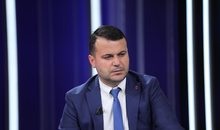
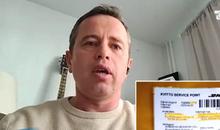
Immigrant in Sweden accuses CEC of violating the secrecy of his vote
2025-04-28 21:44:30
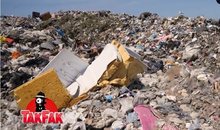
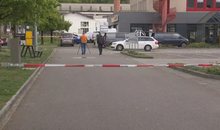
Bullets fired at car, Albanian injured in Switzerland
2025-04-28 21:02:07
Albanian caught with 2 million euros of cocaine in his car
2025-04-28 20:45:20

Why does Rama threaten citizens who complain about corruption?
2025-04-28 20:17:54
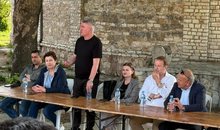
Gjekmarkaj meeting with residents in Tale 2: We win 5:2 in the Lezha region
2025-04-28 19:55:24
CEC tests PEI devices to be used on May 11
2025-04-28 19:36:24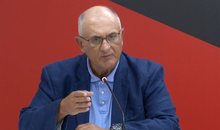


"Enough is enough", Rama is distracted by young people during the meeting
2025-04-28 19:12:28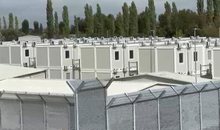
"La Stampa": 16 migrants have "disappeared" from the Gjadri camp
2025-04-28 18:55:34
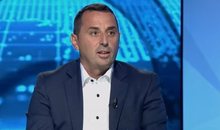

A person's eyes can tell if they have 'mental problems'
2025-04-28 18:05:09
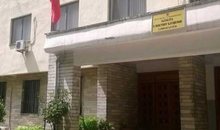

Cardiovascular diseases, 8% of patients at risk for cardiac arrest
2025-04-28 17:19:40
Xhaferri: The next Prime Minister from the DP will be for all citizens
2025-04-28 17:11:44

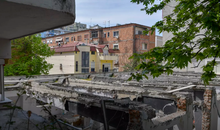

Children with developmental and speech delays due to "cellphone in hand"
2025-04-28 16:22:51
Power outages in Spain and Portugal, services 'paralyzed'
2025-04-28 16:14:38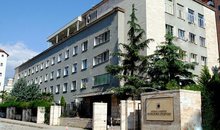

Richard Grenell reacts to the news reprinted by Politiko: It is false!
2025-04-28 15:52:47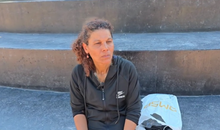

Foods with vitamin A, here's why they are vital for eye protection
2025-04-28 15:32:34



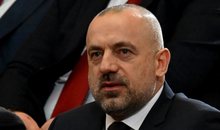
Kosovo issues arrest warrant for Radočić for war crimes
2025-04-28 14:42:59

Putin declares ceasefire in Ukraine!
2025-04-28 14:12:44

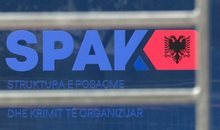
"Partizani" file, GJKKO rejects the request for the judge's disqualification
2025-04-28 13:35:08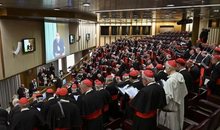
Election of the new Pope/ Conclave to meet on May 7
2025-04-28 13:28:50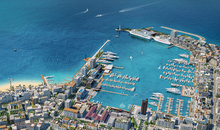
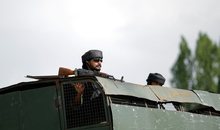
Cross-border terrorism? India and Pakistan continue to exchange fire in Kashmir
2025-04-28 13:01:20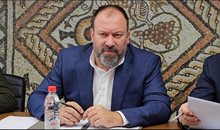
Arbjan Mazniku is being questioned by the Tirana Prosecution Office
2025-04-28 12:37:37
Video/ Tragic in Turkey, 3 people lose their lives after landslide
2025-04-28 12:22:54
The Pope of humane values who inspires hope among Albanians
2025-04-28 12:21:48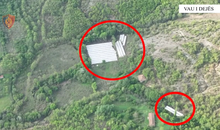
2200 cannabis plants and 578 seedlings seized in Vau e Dejës
2025-04-28 12:09:51
Quarrel between son-in-law and mother-in-law in Fier, police intervene
2025-04-28 12:01:28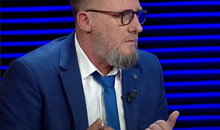
The opposition's trap with lobbying, and the pit where Rama's media 'heads' sank
2025-04-28 11:58:31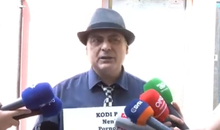

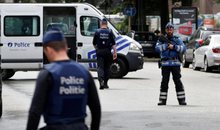
3 cannabis plantations discovered in Belgium, 5 Albanians arrested
2025-04-28 11:21:01

Two cars collide on the Lezhë-Manati axis, 5 injured
2025-04-28 11:02:08
Trump thinks Zelensky is ready to give up Crimea
2025-04-28 10:47:43
Crossing the line? DW: Conservative Catholics against blessing for all
2025-04-28 10:38:58


Meta calls on Albanians: Vote no. 1! Great Albania is very close
2025-04-28 10:01:03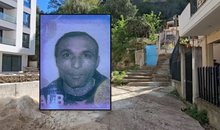
Photo/ This is the 58-year-old man who was executed with three bullets in Vlora
2025-04-28 09:44:12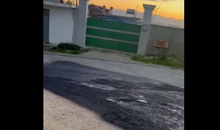

Trump doubts Putin's desire for peace
2025-04-28 09:08:27
Defrauding citizens with fake banking messages, 23-year-old arrested in Tirana
2025-04-28 08:48:39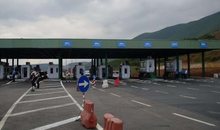
Border controls between Albania and Kosovo are lifted
2025-04-28 08:33:30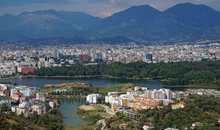


EU pulls out US academics after Trump freezes funding
2025-04-28 07:33:30

Morning Post/ In 2 lines: What mattered yesterday in Albania
2025-04-28 07:10:22

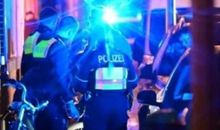




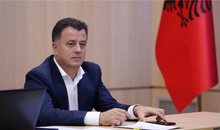


Collision between three vehicles in Lushnja, four injured
2025-04-27 18:48:40
Accident on the Lushnja bypass, "Range Rover" crashes and catches fire
2025-04-27 18:29:38

5 small habits that can change your life
2025-04-27 17:43:38

Will Pope Francis' successor be a Hungarian?
2025-04-27 16:37:36


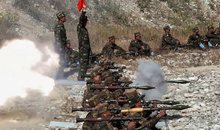
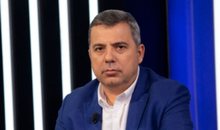

Two Albanians arrested in Germany, one wanted in two countries
2025-04-27 14:51:03
From sea salt to beer, discover the most dangerous foods for our health
2025-04-27 14:34:30


Two charged with allegedly raping former DP MP's son in Lundë
2025-04-27 13:29:21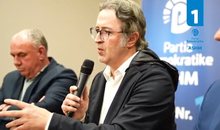

Thumanë/ A gunshot is fired at a car, the perpetrator is identified
2025-04-27 13:00:06
